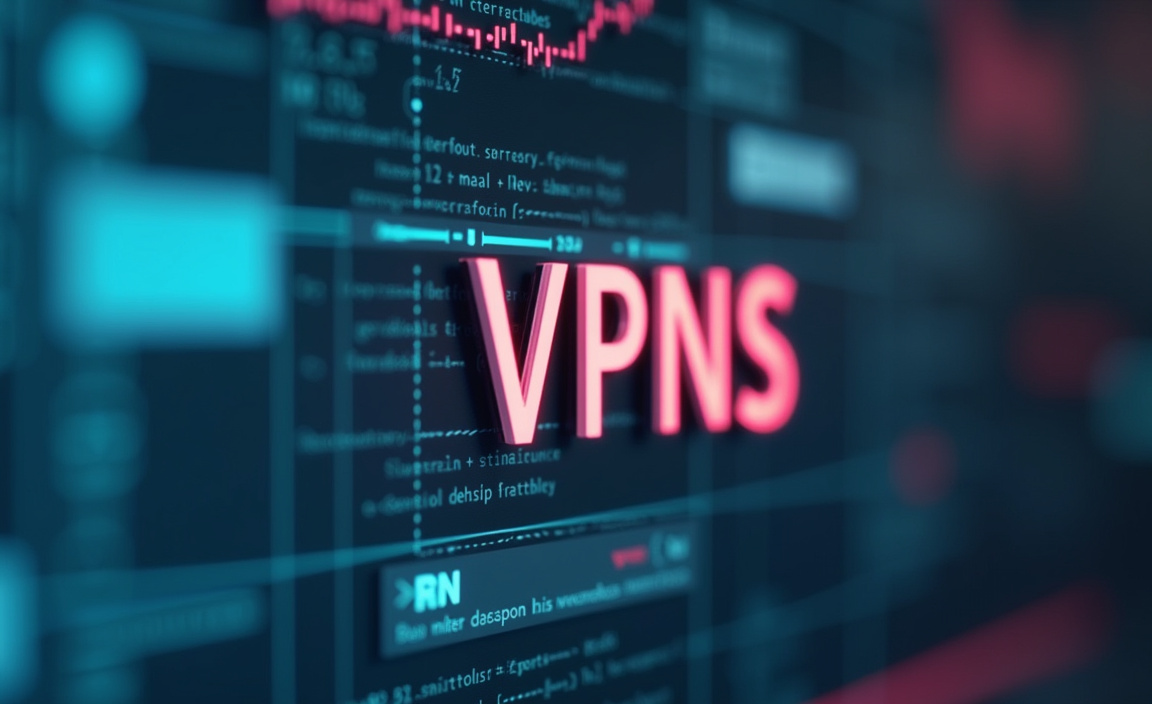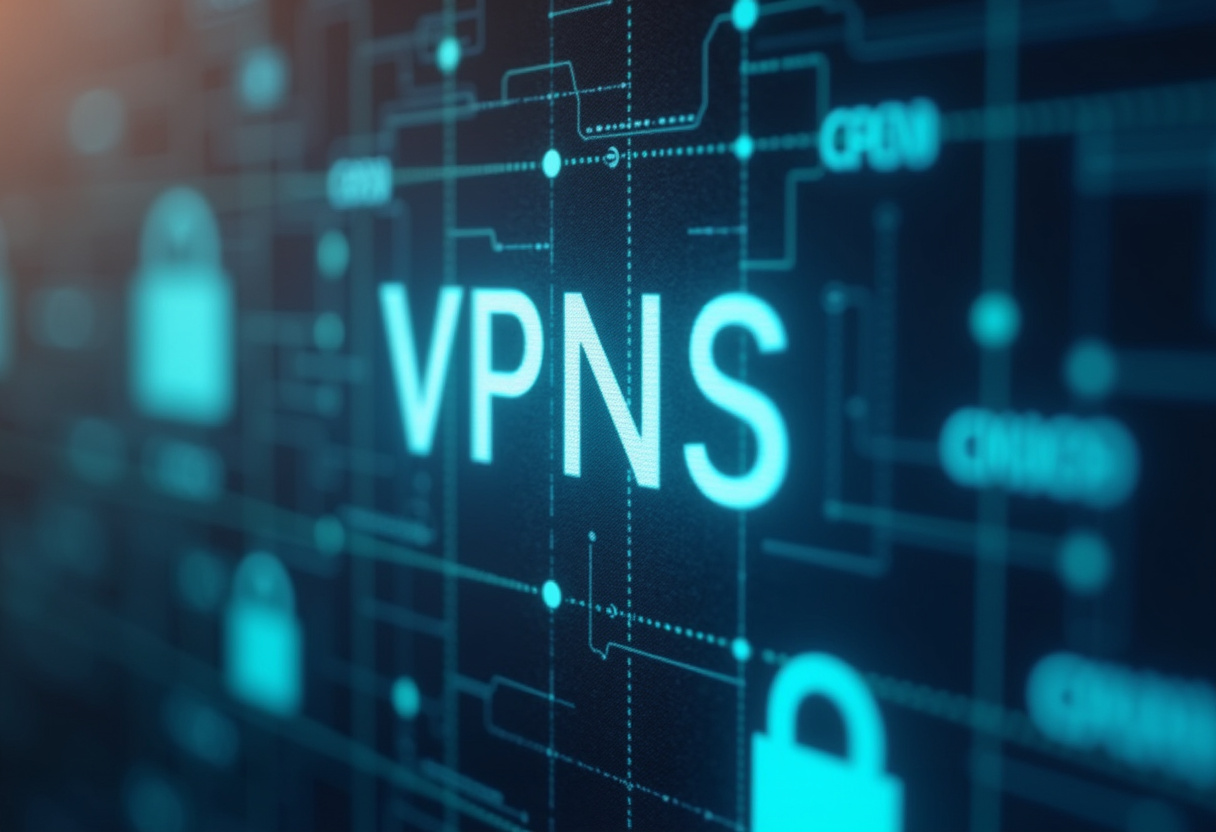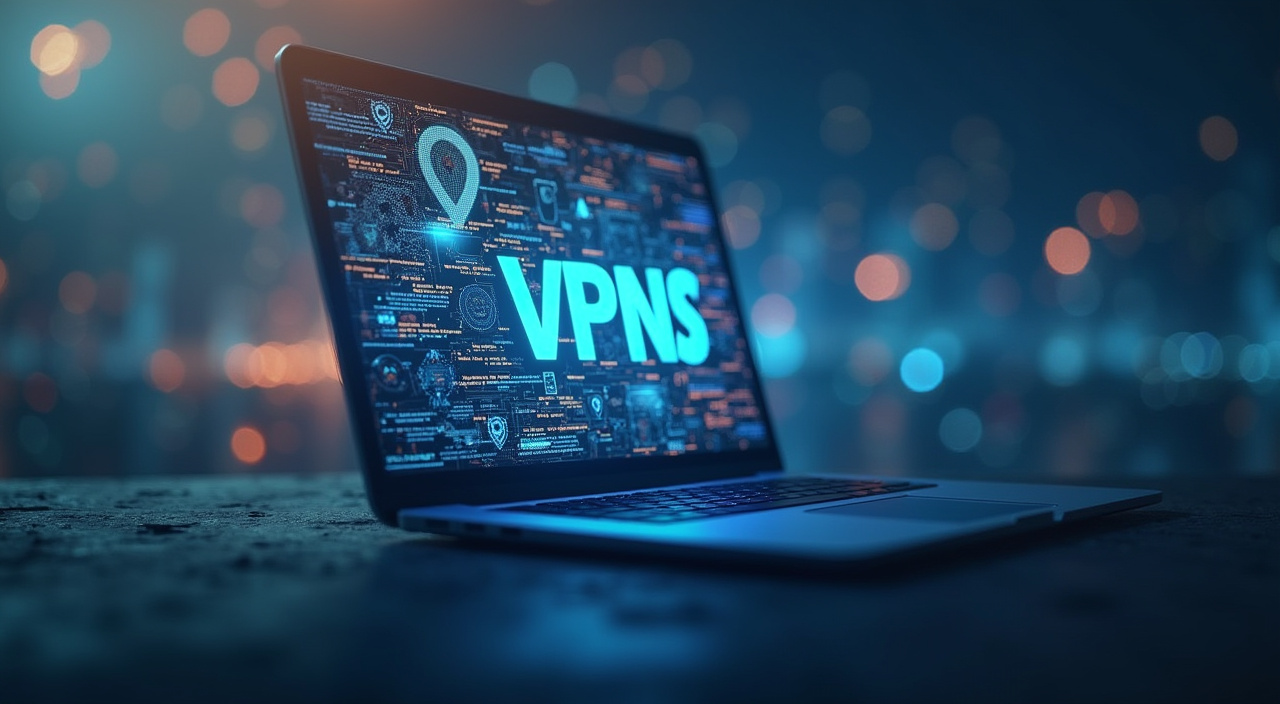VPNs for Sports Clubs: Protecting Athlete Data

Table of Contents
Safeguarding Athlete Data: The Imperative of Data Security in Modern Sports
In the high-octane arena of professional sports, where victory is often measured in fractions of a second or marginal gains, the protection of athlete data has emerged as a critical imperative. No longer a mere afterthought, robust data security is now an indispensable component of a successful sports club's strategic framework. This article delves into the crucial role that Virtual Private Networks (VPNs) play in safeguarding sensitive athlete information, exploring how a well-implemented “sports club VPN” can serve as a powerful shield against a growing array of cyber threats.
The digital landscape of modern sports has created unprecedented opportunities for data collection and analysis. From advanced wearable technologies that track every heart beat and muscle movement to sophisticated scouting software that analyzes player performance, sports clubs are awash in data. This data, when properly harnessed, can unlock valuable insights, optimize training regimes, and inform strategic decisions, ultimately contributing to improved performance and competitive advantage.
However, the very data that fuels success also represents a significant vulnerability. Sensitive information, if compromised, can have far-reaching and devastating consequences. Imagine a scenario where an athlete's confidential medical records are leaked, revealing a pre-existing injury or vulnerability that could be exploited by opposing teams.
Or consider the potential damage if a club's carefully crafted training strategies and performance metrics fall into the hands of a rival organization. The stakes are incredibly high, making data protection a non-negotiable priority. A “sports club VPN” provides a fundamental layer of security by creating an encrypted tunnel for all internet traffic.
This tunnel effectively masks the IP addresses of devices connected to the network, making it significantly more difficult for cybercriminals to intercept and steal sensitive data. This is especially critical when athletes and staff are using public Wi-Fi networks, which are notoriously insecure and vulnerable to eavesdropping. Whether at a training camp, a hotel, or a public cafe, a VPN ensures that data transmitted over these networks remains confidential and protected from prying eyes.
The importance of VPNs extends beyond simply encrypting data in transit. A well-configured VPN can also help to prevent man-in-the-middle attacks, where cybercriminals intercept communications between two parties, impersonating one of them to steal information. This type of attack can be particularly damaging, as it can allow criminals to gain access to sensitive credentials or financial information.
Furthermore, “VPN for sports” can also be used to bypass geographic restrictions, allowing athletes and coaches to access content and resources that may be blocked in certain regions. This is particularly valuable when traveling internationally for competitions or training. For example, a coach may need to access specific training videos or scouting reports that are only available in certain countries.
A VPN allows them to do so securely and without violating any copyright restrictions. Selecting the right VPN for a sports club is a critical decision that requires careful consideration. The VPN provider should offer robust encryption protocols, a strict no-logs policy, and a wide range of server locations around the world.
It is also important to choose a VPN that is compatible with a variety of devices, including laptops, smartphones, and tablets. Regular security audits and penetration testing are essential to ensure that the VPN infrastructure remains secure and resilient against evolving cyber threats. In conclusion, the adoption of a “sports club VPN” is a vital step towards protecting athlete data and ensuring the long-term success of the organization.
It offers a comprehensive and cost-effective solution to a growing range of cyber threats, enabling sports clubs to focus on what they do best: training, competing, and winning. By prioritizing “athlete security” and data protection, sports clubs can build trust, attract and retain top talent, and maintain a competitive edge in the ever-evolving world of professional sports.
VPNs: A Secure Tunnel for Protecting Sensitive Information
Athlete security within the context of a sports club extends far beyond simply preventing data breaches; it encompasses a proactive approach to safeguarding their personal well-being, financial stability, and competitive advantage. Athletes are increasingly vulnerable to a wide range of cyber threats, including phishing scams, identity theft, and online harassment. Their high profiles and significant earnings make them attractive targets for criminals looking to exploit their vulnerabilities.
Phishing scams, for example, can trick athletes into revealing personal information, such as banking details or social security numbers, which can then be used to commit identity theft or financial fraud. Online harassment and cyberbullying can have a devastating impact on an athlete's mental health and performance, potentially derailing their career. The implementation of a “VPN for sports” forms a key component of a multi-layered security strategy designed to protect athletes from these evolving threats.
A VPN safeguards their online activity, making it more difficult for cybercriminals to track their movements and target them with personalized attacks. It can also prevent eavesdropping on their communications, ensuring that sensitive conversations with coaches, agents, and family members remain private. Data protection is not just about complying with regulations; it is about building trust and fostering a secure environment where athletes can focus on their training and performance.
A sports club that demonstrates a commitment to protecting its athletes' data is more likely to attract and retain top talent. Athletes are increasingly aware of the risks associated with data breaches and are more likely to choose to work with organizations that prioritize their security. In addition to VPNs, other crucial security measures include implementing strong password policies, educating athletes about phishing scams and other cyber threats, and providing them with access to secure communication channels.
Regular security audits and vulnerability assessments can help to identify and address any weaknesses in the club's security posture. It is essential for sports clubs to establish a clear and comprehensive data protection policy that outlines how athlete data is collected, stored, used, and protected. This policy should be communicated to all members of the organization and should be regularly reviewed and updated to reflect changes in technology and regulations.
Moreover, the club needs to invest in robust endpoint security solutions for all athlete-owned devices, including laptops, smartphones, and tablets. These solutions can help to prevent malware infections and protect sensitive data stored on the devices. It's also critical to ensure that all software and operating systems are kept up to date with the latest security patches, as outdated software is a common target for cybercriminals.
Beyond the technical aspects, fostering a culture of security awareness within the sports club is essential. Athletes, coaches, and staff need to be trained on best practices for online security and should be encouraged to report any suspicious activity. This includes recognizing phishing emails, using strong passwords, and avoiding public Wi-Fi networks for sensitive transactions.
The implementation of a “privacy safeguard” goes beyond simply installing a VPN; it requires a holistic approach that encompasses education, policy, and technology. Athletes need to understand the risks they face online and how to protect themselves. They should be trained to recognize phishing emails, avoid suspicious websites, and use strong passwords.
The sports club should also have a clear and concise data protection policy that outlines how athlete data is collected, stored, used, and protected. This policy should be communicated to all members of the organization and should be regularly reviewed and updated to reflect changes in technology and regulations. Finally, the sports club should invest in robust security technologies, such as firewalls, intrusion detection systems, and anti-malware software, to protect its network from cyber threats.
By taking these steps, sports clubs can create a secure environment where athletes can focus on their training and performance without worrying about the risks of cybercrime. The “sports club VPN” is a critical component of this overall security strategy, providing a vital layer of protection against a wide range of online threats.
Bypassing Geo-Restrictions and Ensuring Secure Access
Data protection within a sports club environment is a multifaceted challenge that demands a holistic approach, encompassing not just technical safeguards but also robust policies, comprehensive training, and a strong culture of security awareness. The sheer volume and variety of data generated by a modern sports club, spanning medical records, performance statistics, scouting reports, and financial information, necessitates a robust and well-defined data protection strategy. This strategy must align with applicable data privacy regulations, such as GDPR or CCPA, and should be tailored to the specific needs and risk profile of the organization.
One of the key aspects of data protection is implementing strong access controls. Only authorized personnel should have access to sensitive athlete data, and access should be granted on a need-to-know basis. This means restricting access to medical records to only physicians and trainers, limiting access to financial information to designated finance staff, and ensuring that scouting reports are only accessible to coaches and scouts.
Multi-factor authentication (MFA) should be implemented wherever possible to add an extra layer of security and prevent unauthorized access even if passwords are compromised. Data encryption is another critical component of a comprehensive data protection strategy. Sensitive data should be encrypted both in transit and at rest.
Encryption in transit, which is precisely what a “sports club VPN” provides, ensures that data is protected while it is being transmitted over the internet or a network. Encryption at rest ensures that data is protected even if the storage device or server is compromised. This can be achieved through the use of full-disk encryption, file-level encryption, or database encryption.
Regular data backups are also essential for ensuring data protection. Backups should be performed regularly and stored in a secure location, ideally offsite or in the cloud. This will allow the sports club to quickly recover data in the event of a data breach, hardware failure, or natural disaster.
Backups should be tested regularly to ensure that they are working correctly and that data can be restored successfully. In addition to these technical safeguards, a strong data protection policy is crucial. This policy should outline how athlete data is collected, stored, used, and protected.
It should also define the roles and responsibilities of individuals within the organization who are responsible for data protection. The policy should be regularly reviewed and updated to reflect changes in technology, regulations, and the club's risk profile. Furthermore, comprehensive training is essential for creating a culture of security awareness.
Athletes, coaches, and staff should be trained on best practices for data protection, including how to recognize phishing emails, use strong passwords, and protect their devices from malware. They should also be trained on the club's data protection policy and their responsibilities under the policy. The effectiveness of a “privacy safeguard” depends not only on technology and policies but also on the human element.
Everyone within the sports club must understand the importance of data protection and be committed to following best practices. Regular security awareness training can help to foster a culture of security and ensure that everyone is playing their part in protecting athlete data. Finally, it is important to regularly monitor and audit the sports club's data protection practices.
This can help to identify any weaknesses in the system and ensure that the club is complying with its own policies and procedures. Regular security audits and penetration testing can help to identify vulnerabilities in the club's network and systems. By taking a proactive approach to data protection, sports clubs can minimize the risk of data breaches and protect the privacy of their athletes.
The integration of a “VPN for sports” is a significant and necessary step in this direction, reinforcing the overall security posture and mitigating potential risks associated with data transmission and access. This commitment to “athlete security” not only ensures compliance but also fosters a robust and resilient environment for optimal performance.
Selecting the Right VPN for Optimal Security
The establishment of a robust "privacy safeguard" system within a sports club necessitates a multi-faceted strategy that seamlessly integrates technology, policy, and education. It goes beyond simply implementing a "sports club VPN," and delves into the creation of a security-conscious culture where every member understands and actively participates in protecting sensitive data. One crucial aspect is the development and implementation of a comprehensive data breach response plan.
This plan should outline the steps to be taken in the event of a data breach, including identifying the scope of the breach, containing the damage, notifying affected individuals, and restoring data. The plan should be regularly tested and updated to ensure that it is effective. The response plan should clearly define roles and responsibilities.
A designated incident response team should be identified, trained, and empowered execute the plan in a timely and efficient manner. The team should include representatives from IT, legal, communications, and management. Early planning and rehearsal will minimize confusion and mistakes during an actual data breach scenario.
Regular risk assessments are another essential component of a robust privacy safeguard system. These assessments should be conducted regularly to identify potential vulnerabilities in the club's systems and processes. The results of the risk assessments should be used to prioritize security improvements and allocate resources effectively.
Risk assessments should consider both internal and external threats. Internal threats can include accidental data breaches, employee negligence, and malicious insider activity. External threats can include hacking, phishing, and malware attacks.
The integration of threat intelligence is paramount for staying ahead of emerging cyber threats. Sports clubs should proactively monitor security news feeds, subscribe to threat intelligence services, and participate in industry forums to stay informed about the latest vulnerabilities and attack vectors. By understanding the evolving threat landscape, sports clubs can adjust their defense mechanisms accordingly and proactively mitigate potential risks.
Furthermore, incorporating advanced security technologies, such as intrusion detection and prevention systems (IDPS), security information and event management (SIEM) systems, and data loss prevention (DLP) solutions, can significantly enhance the club’s ability to detect, prevent, and respond to cyber threats. IDPS solutions monitor network traffic for suspicious activity and automatically block or alert administrators to potential threats. SIEM systems collect and analyze security logs from various sources to provide a centralized view of security events.
DLP solutions prevent sensitive data from leaving the organization without authorization. Conducting background checks on employees who have access to sensitive athlete data is a wise security practice. Background checks can help to identify individuals who may pose a security risk.
Background checks should be conducted in accordance with applicable laws and regulations. The use of data anonymization and pseudonymization techniques can help to protect athlete privacy while still allowing the club to use data for analysis and research purposes. Data anonymization removes all identifying information from data, making it impossible to link the data back to an individual.
Data pseudonymization replaces identifying information with pseudonyms, which can be reversed if necessary but still provide a degree of privacy. Sports clubs should have a clear and well-defined policy on data retention. Data should only be retained for as long as it is necessary for legitimate business purposes.
When data is no longer needed, it should be securely deleted or destroyed. This helps to minimize the risk of data breaches and ensures compliance with data privacy regulations. Regular patching and updating of software and systems is critical for maintaining a strong security posture.
Software vulnerabilities are a common target for cybercriminals. By promptly installing security patches and updates, sports clubs can reduce their risk of being exploited. A formalized patch management process can ensure that all systems are kept up to date.
This proactive approach to cybersecurity, combined with the essential "sports club VPN," creates a resilient and dependable "athlete security" system. Maintaining a rigorous update schedule, conducting regular vulnerability assessments, and engaging in continuous security awareness training solidifies the "data protection" capabilities of clubs, leading to enhanced "athlete security."
In conclusion, securing athlete data within sports clubs is not just a technical undertaking, but a strategic imperative that requires a cohesive and comprehensive approach. The modern sports landscape, driven by data analytics and global accessibility, has created both unprecedented opportunities and heightened vulnerabilities. The adoption of a “sports club VPN” serves as a critical foundation for data protection, but it's merely one piece of a larger puzzle.
A truly effective "athlete security" strategy necessitates a commitment to robust policies, continuous education, and proactive monitoring. The implementation of strong access controls, employing multi-factor authentication, and regularly auditing user permissions are crucial steps to limit unauthorized access to sensitive information. Data encryption, both in transit and at rest, ensures that data remains protected even if systems are compromised.
Regular data backups and a well-defined disaster recovery plan are essential to mitigate the impact of data loss events. Beyond the technical measures, fostering a culture of security awareness among athletes, coaches, and staff is paramount. Educating individuals about phishing scams, malware threats, and the importance of strong passwords empowers them to become active participants in protecting sensitive data.
Regular security awareness training, coupled with simulated phishing exercises, can help to reinforce best practices and identify areas where further education is needed. Furthermore, establishing clear policies on data retention, data anonymization, and incident response is essential for maintaining compliance with data privacy regulations and effectively managing data breaches. A well-defined incident response plan ensures that the club can quickly identify, contain, and remediate data breaches, minimizing the potential damage to athletes and the organization.
The integration of threat intelligence feeds and advanced security technologies, such as intrusion detection systems and security information and event management (SIEM) systems, enables proactive monitoring and early detection of cyber threats. Continuous monitoring of network traffic, security logs, and system activity provides valuable insights into potential vulnerabilities and allows for timely intervention. Regular security audits and penetration testing are essential to identify weaknesses in the club’s security posture and ensure that security controls are effective.
These assessments should be conducted by independent security experts who can provide an unbiased evaluation of the club's security practices. The selection of a “VPN for sports” should be carefully considered, taking into account factors such as encryption strength, server locations, no-logs policy, and compatibility with various devices. The VPN provider should have a proven track record of security and reliability, and should be committed to protecting user privacy.
Moreover, the legal and ethical considerations surrounding athlete data protection should not be overlooked. Sports clubs must comply with applicable data privacy regulations, such as GDPR and CCPA, and must be transparent with athletes about how their data is collected, used, and protected. Ultimately, the goal is to create a secure and trustworthy environment where athletes feel confident that their personal information is protected.
By prioritizing data protection and investing in robust security measures, sports clubs can not only mitigate the risks of cyber attacks but also enhance their reputation, build trust with athletes, and maintain a competitive advantage. The commitment to “privacy safeguard” practices sends a clear message that the organization values the privacy and well-being of its athletes, fostering a positive and supportive environment. In the long run, a proactive and comprehensive approach to athlete data security is an investment that pays dividends, not only in terms of preventing financial losses and reputational damage, but also in attracting and retaining top talent in the ever-competitive world of sports.
The deliberate and consistent application of these principles ensures the long-term resilience and competitiveness of the organization, placing "data protection" at the core of their strategy. The continuous improvement of security protocols and vigilance guarantee "athlete security," allowing athletes to concentrate on excelling in their sport; ultimately, this secures not only the individual's future but the entire organization's viability.
Stay Updated
Get the latest VPN news, tips, and exclusive deals to your inbox.




